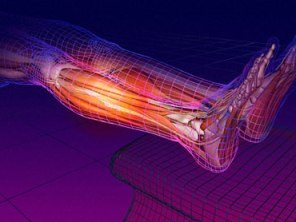
What is Restless Legs Syndrome?
People with restless legs syndrome have uncomfortable sensations in their legs (and sometimes arms or other parts of the body) and an irresistible urge to move their legs to relieve the sensations. The condition causes an uncomfortable, “itchy,” “pins and needles,” or “creepy crawly” feeling in the legs.
What Triggers Restless Legs?
In some cases, RLS happens on its own and seems to be passed on in families. In other cases, the condition seems to be linked to other medical problems. For instance, a condition called “anemia,” in which there is too little iron in the blood, seems to increase the risk of RLS. Other conditions that increase the risk of RLS include kidney disease, diabetes, and multiple sclerosis. Pregnancy seems to increase a woman’s risk of developing RLS, too.
What is Periodic Limb Movement Disorder (PLMD)?
While the majority of RLS patients also have PLMS witnessed during sleep, many patients with PLMS do not have restless legs syndrome. Therefore, Restless legs syndrome and PLMS may cause you to get fewer hours of sleep each night. Milder cases do not disturb your sleep as much, though the sleep may be of poorer quality.
How do you know if you have Restless Leg Syndrome?
People who have RLS get an uncomfortable urge to move their legs when they are at rest. They describe the feeling as crawling, creeping, pulling, or itching. In addition, they say the feeling is deep in the legs – not on the skin – usually below the knees. These symptoms usually get worse as the day moves on, and they are worse at night. The symptoms can be especially bad when trying to stay still to read a book, watch television, or fall asleep. But people can make the feeling go away temporarily if they walk around or move their legs. Some people with RLS find that their legs move on their own while they are asleep.
In short, the symptoms:
●Happen when you are at rest.
●Go away if you move your legs on purpose.
●Are worst at night.
●Sometimes include the legs moving on their own during sleep.
Together, the symptoms of RLS can make it hard to get a good night’s sleep. People with the condition often feel tired during the day.

Is There a Test for RLS?
There is a test, but it is not usually necessary. Your doctor should be able to tell if you have it by asking about your symptoms and doing an exam. Still, it is possible that your doctor or nurse will decide to send you for a “sleep study,” to be sure of what is happening.
How do you get Rid of Restless Leg Syndrome?
Reduce Pain. The symptoms of RLS can range from irritating to very painful. Try alternating hot and cold compresses on your legs to reduce pain.
It is better if you:
●Do activities that keep your mind alert during the day, such as crossword puzzles.
●Get moderate regular exercise.
●Massage your legs (or have someone massage them).
●Apply heat to your legs with heating pads or by taking a warm bath.
●Avoid taking medicines that can make RLS worse.
What is the Best Treatment for Restless Leg Syndrome?
Your doctor will prescribe the best treatment plan for you. Dopamine agonists: these are most often the first medicines used to treat RLS. These drugs, includingpramipexole (Mirapex), rotigotine (Neupro), and ropinirole (Requip) act like the neurotransmitter dopamine in the brain.
What if I am Pregnant?
If you are pregnant, you can take iron supplements and try the other tips that do not involve taking prescription medicines. Most of the medicines used to treat RLS are not safe to take during pregnancy. If your symptoms are bad, there are some medicines that might be OK to take. However, keep in mind that the condition usually goes away toward the end of pregnancy.
Is Restless Leg Syndrome a Bad Thing?
Many medical conditions are linked to RLS, including iron deficiency, diabetes, end-stage kidney disease, Parkinson’s disease, and pregnancy. However, most people with restless legs syndrome do not have one of these conditions. If you have one of these conditions, treating it can improve RLS symptoms.
What medicine may cause RLS?
Allergy medications
Many antidepressants
Antihistamines and over-the-counter sleep aids
Nearly all centrally active dopamine-receptor antagonists, including anti-nausea medications